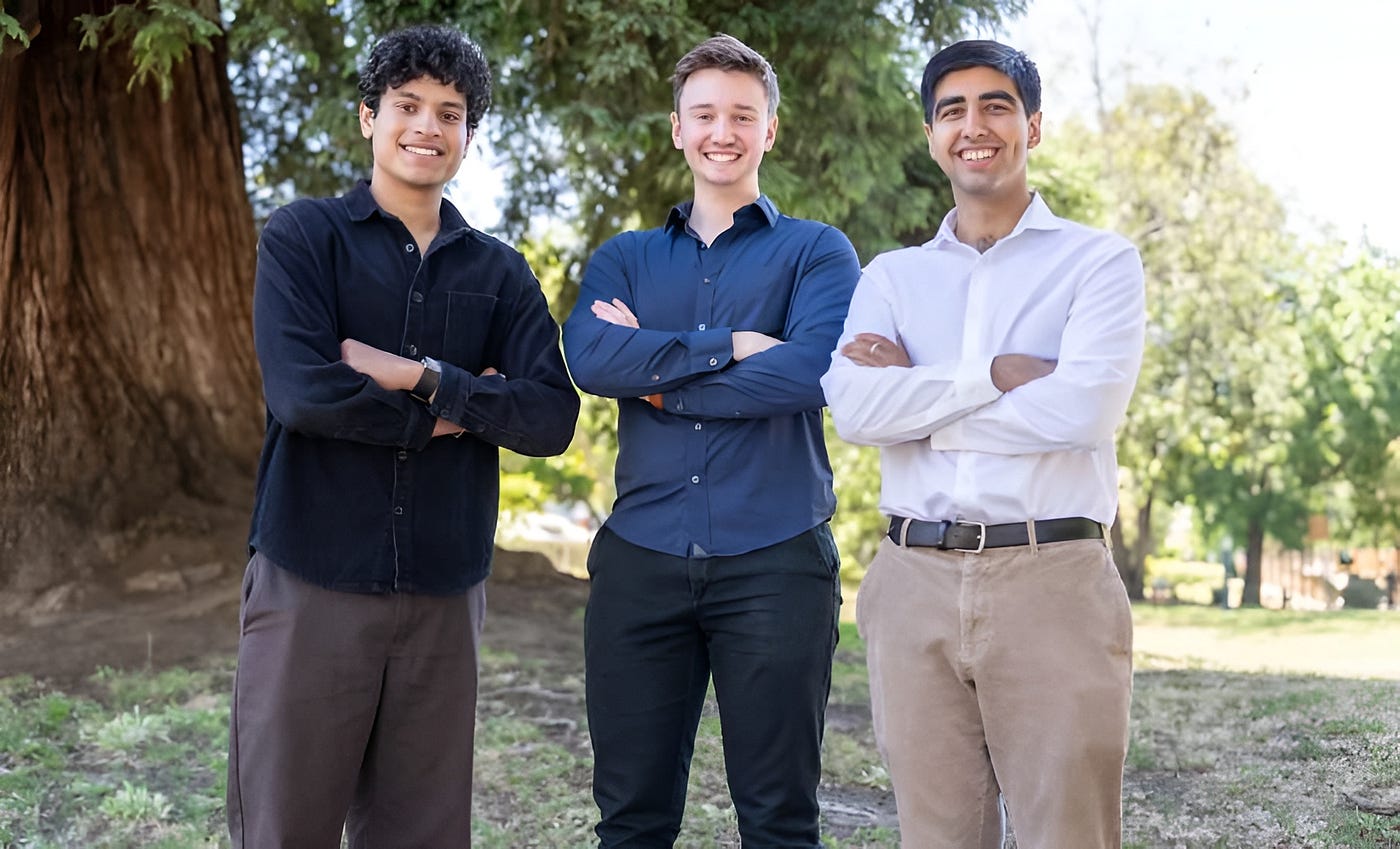They’re Only 22: The Secret AI Business Model That Just Minted the World's Youngest Billionaires
Three Bay Area twenty-somethings have just rewritten Silicon Valley history. With a $350 million funding round valuing their AI recruiting startup Mercor at a staggering $10 billion, founders Brendan Foody, Adarsh Hiremath, and Surya Midha have officially become the world’s youngest self-made billionaires—each only 22 years old. Their journey from a high-school debate team to the top of the global tech wealth charts shows how the AI economy is creating fortunes faster than ever—and why ordinary people should pay attention.
From High-School Debate to Billion-Dollar Startup
Mercor began in 2023 with a simple idea: connect talented engineers in India to U.S. tech companies through a smart recruiting platform. Within months, the founders pivoted toward data-labeling and AI-training services, matching Ph.D.s, lawyers, and researchers to frontier labs that needed humans to verify AI outputs. That pivot unlocked explosive growth.
Earlier this year, Felicis Ventures, Benchmark, General Catalyst, and Robinhood Ventures poured $350 million into the company, catapulting Mercor’s valuation to $10 billion. Forbes estimates each founder now holds roughly a 22 percent stake—enough to crown them billionaires on paper.
Why Investors Are Paying Billions for Human Work Sold to Machines
Training advanced AI models safely still requires people. Mercor and its rivals—Scale AI, Surge, and Turing—supply expert-level human reviewers who audit and correct AI responses. These services are now treated like infrastructure by major labs, commanding enterprise rates of $80–$170 per hour. The business model mixes hourly contracting, enterprise subscriptions, and proprietary dataset licensing—three recurring-revenue levers that investors love.
It’s a reminder that amid the hype about automation, the most profitable AI startups are still powered by human expertise.
Trouble in Paradise: The Scale AI Lawsuit
In September, competitor Scale AI filed suit accusing Mercor of stealing trade secrets after a former Scale executive joined the startup and allegedly shared more than 100 confidential documents. Foody called it a distraction, but such disputes can slow contracts and raise compliance costs. For gig workers tied to these ecosystems, outcomes like this can directly affect pay rates and job availability.
Can Everyday Investors and Freelancers Actually Make Money from the AI Recruiting Boom?
Short answer: Yes—if you understand timing, specialization, and risk.
Mercor’s story highlights a lucrative middle market: specialized human labor packaged as subscription infrastructure.
Why it pays: Frontier AI firms discovered that models trained on raw data make costly errors. By hiring doctors, lawyers, and linguists to review model outputs, they improve reliability. Companies like Mercor earn healthy margins by charging enterprise clients premium rates while paying contractors competitively—creating a recurring-revenue machine that VCs can scale quickly.
What’s at stake for consumers:
-
Freelancers in niche fields can command premium hourly rates.
-
Retail investors may benefit indirectly through public companies offering AI-infrastructure services.
-
Market risk remains high: lawsuits, funding pullbacks, or regulation could compress valuations overnight.
Actionable takeaways:
-
Specialists: Build a portfolio of annotated or audited work and seek verified platforms.
-
Investors: Look for diversified exposure to AI-service providers instead of chasing private unicorns.
-
Consumers: Ask whether AI tools you use rely on human oversight—accuracy often tracks with cost.
Bottom line: The AI recruiting economy offers real income potential for skilled professionals—but only to those who treat it as a business, not a gig.
The Bigger Picture: How the AI Labor Market Is Creating a New Generation of Billionaires
Mercor’s meteoric rise signals a broader transformation: the birth of the human-in-the-loop economy.
Every major AI system—from ChatGPT to Gemini—depends on armies of people testing and refining its outputs. What began as piecemeal annotation work is now a billion-dollar supply chain selling trust data to Big Tech. Startups like Mercor and Surge have monetized cognition itself—turning human judgment into a scalable commodity.
The wealth effect is undeniable. Valuations for AI-labor platforms have jumped tenfold in two years, minting a new breed of ultra-young founders who profit by organizing, not coding.
The ripple effects:
-
Freelance pay inflation: Domain specialists earn record rates for model-review tasks.
-
Regulatory scrutiny: Governments are exploring labor protections for AI contractors, hinting at new compliance costs.
-
Investor recalibration: Venture capital is shifting from flashy consumer AI apps to infrastructure firms with recurring revenue.
For ordinary consumers, two trends stand out. First, AI accuracy will soon carry a price tag—products verified by humans will charge a premium. Second, AI-related freelance work is becoming a viable career path, with universities and bootcamps rolling out credentials in data-labeling and prompt evaluation.
Takeaway: The next wave of wealth isn’t built by coders alone—it’s built by coordinators and reviewers teaching machines how to think. Mercor’s trio embodies that shift: the future of AI remains, paradoxically, powered by people.
LATEST: Billionaire's 'Invisible Tax': Talarico Reveals How the Ultra-Rich Hike Your Grocery Bill
What This Means for Jobseekers and Recruiters
-
Jobseekers: Specialized skills—prompt engineering, policy auditing, or medical verification—will command premium rates.
-
Recruiters: Expect the market to split: commodity labeling handled by automation, high-value review outsourced to expert boutiques.
-
Consumers: You’ll increasingly choose between cheaper AI tools and “expert-reviewed” premium versions promising safer, higher-quality results.
Fast Checklist: Profit or Protect Yourself
-
Freelancers: Niche down, document your work, clarify IP ownership.
-
Investors: Favor diversified exposure over single-startup hype.
-
Consumers: Understand when a “human-in-the-loop” label justifies the higher cost.
Mercor founders FAQ
Q: Are Mercor’s founders really billionaires?
A: On paper, yes—their combined stakes at a $10 billion valuation exceed $2 billion each, though the wealth remains illiquid until an IPO or sale.
Q: Will the Scale AI lawsuit hurt Mercor?
A: Not immediately. Such cases often settle; the impact depends on discovery findings and client perception.
Q: Can freelancers still break in?
A: Absolutely. Early specialists in law, medicine, or linguistics are commanding the highest rates. Commodity labeling, however, is becoming crowded.
Final Takeaway
Mercor’s founders aren’t just the world’s youngest billionaires—they’re the first faces of an economy where human judgment is the most valuable currency in technology. Whether you’re an investor, freelancer, or consumer, understanding how AI companies monetize human oversight could be the smartest financial move you make this decade.














